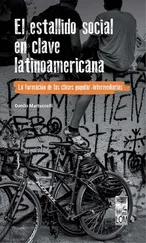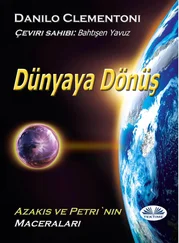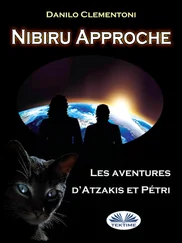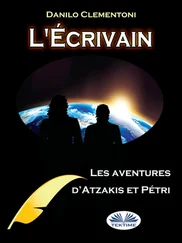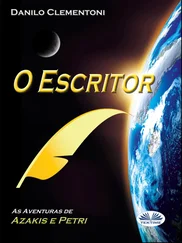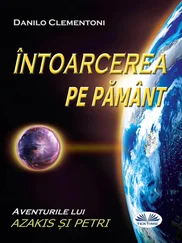Danilo Kiš - Psalm 44
Здесь есть возможность читать онлайн «Danilo Kiš - Psalm 44» весь текст электронной книги совершенно бесплатно (целиком полную версию без сокращений). В некоторых случаях можно слушать аудио, скачать через торрент в формате fb2 и присутствует краткое содержание. Год выпуска: 2012, Издательство: Dalkey Archive Press, Жанр: Современная проза, на английском языке. Описание произведения, (предисловие) а так же отзывы посетителей доступны на портале библиотеки ЛибКат.
- Название:Psalm 44
- Автор:
- Издательство:Dalkey Archive Press
- Жанр:
- Год:2012
- ISBN:нет данных
- Рейтинг книги:4 / 5. Голосов: 1
-
Избранное:Добавить в избранное
- Отзывы:
-
Ваша оценка:
- 80
- 1
- 2
- 3
- 4
- 5
Psalm 44: краткое содержание, описание и аннотация
Предлагаем к чтению аннотацию, описание, краткое содержание или предисловие (зависит от того, что написал сам автор книги «Psalm 44»). Если вы не нашли необходимую информацию о книге — напишите в комментариях, мы постараемся отыскать её.
Psalm 44 — читать онлайн бесплатно полную книгу (весь текст) целиком
Ниже представлен текст книги, разбитый по страницам. Система сохранения места последней прочитанной страницы, позволяет с удобством читать онлайн бесплатно книгу «Psalm 44», без необходимости каждый раз заново искать на чём Вы остановились. Поставьте закладку, и сможете в любой момент перейти на страницу, на которой закончили чтение.
Интервал:
Закладка:
“I don’t know,” she said. Then mumbled: (“Maybe just once.”)
And then he asked, unexpectedly:
“Do you trust me?” Just like that: “Do you trust me? Or maybe that isn’t the right word. . Anyway, it’s all we’ve got: trust .”
“Yes,” she said. “I do.” If he had asked her that question in a slightly different way or if he had posed it earlier, before time had provided the answer, she would have merely shrugged her shoulders in resignation or she would have lied: “I think I do.”
But this was a day or two after she first met him. Or perhaps it had been five or six days since that first meeting. She no longer knew exactly. She remembered their first encounter: it was on the day following her arrival in the camp. They stood side by side in rows, naked, hair shorn; they were mostly young girls, still capable of working or of providing amusement to the German officers leaving for the Eastern Front or returning from there covered in medals and scars: Deutschland, Deutschland über alles ; they worked doing the selections for the holiday camps: Deutschland, Deutschland über alles ; only the healthy ones received consideration, pretty young girls who knew how to laugh and who were worthy of Aryan passion and the sperm of an Übermensch: Deutschland, Deutschland über alles! And that voice sliced like a knife through her exhaustion and her dream-state, speaking at who knows what volume and at an unknown distance from her, just strong enough for her to pick it up, like a whisper, just enough for it tear painfully into her consciousness, to cause her to raise her eyelids; but her own name sounded to her as distant and as alien as if it were coming from some other world. She stared with a vacant, absent look at the white stain of the coat and then her eyes suddenly grew clear as she simultaneously felt and understood that she’d been slapped; then the white stain moved from her iris and a face was projected before her: brown, smoothly brushed hair and two large buckteeth. The woman with the protruding teeth shouted again and drew so near to Marija that she could feel the next slap about to come, but then she heard, from somewhere off to the side:
“Stop! Damit genug ! We have to be cautious”: the voice rose to a falsetto. “I think. . Verstehen Sie ?. . Verstehen Sie ?”
“ Ja, ja, ich verstehe. . Aber ich denke es ist doch nicht. Zu klein. Das Becken wie eines Kindes. . Aber, insofern, Herr Kollege, denkt sie ist anziehend genüglich . .”
“ Du, Abschaum !” said the man with the yellow star. “Common trash. . Permit me, Dr. Berta. .” Behind her, he humbly moved his stethoscope to a spot under her shoulder blades. She was unable to see his face. She only heard his voice. It was the woman with buckteeth, the one they called Dr. Berta, who was asking the questions for her chart. Marija answered with that automatic strength that kicks into action during an onslaught of fear of death or tiredness.
“ Mutan gemišt —mongrel,” said the voice behind her as she rattled off her answers mechanically, thereby laying bare her origins and conjuring up stray ghosts. “Definitely a mongrel.”
Then the voice that broke into a falsetto asked: “Would Frau Judengemischte —that’s what you said your name was, if I’m not mistaken — would Frau Judengemischte answer one more question for us? Let’s make this. . essentially off the record, okay?”
Her eyes fixed, as if seeking refuge, on the woman with the protruding teeth, and then they scrolled over the shiny skull of Dr. Nietzsche, finally coming helplessly to rest on the grubby, shadowy square of the nearby window. She clenched her teeth in a desperate effort to transfer her thoughts through the window, outside to that invisible wire bisecting the horizon, but she lacked the power to carry this out. She could hardly think anything at all.
“Don’t just stand there. Answer.” Then loudly, cynically: “ FRAU JUDENGEMISCHTE ! HA HA HA. JUDENGEMISCHTE !”—and the first part of the sentence was spoken in Polish, whispered, intimate.
Doctor Nietzsche was very taken with her. He grinned.
“ Frau Judengmischte ! Have you ever had occasion to mix some Aryan substance into your mongrel self? I don’t mean in terms of your genealogy. Directly. A little pure Aryan fluid. Or any other kind, for that matter?”
The stethoscope on her heart transmitted to Jakob’s ear nothing but the waves flooding across the deck and the incantatory beginning of that ancient prayer recognized all over the world both on the sea and dry land: SOS! SOS! SOS! SOS! SOS! SOS!
“No,” she said, speaking in time with the slide of the stethoscope in Jakob’s hands from left to right, left to right, across her ribs: “No.”
“With your permission,” Jakob said at that point, laying aside the stethoscope, “in my opinion the Frau here is not suitable for such uses. Ordinary trash. A waste of time. Go away! Be gone!”
That had been her first meeting with Jakob, immediately after her arrival in the camp. And that’s the reason she was able to answer him a few days later: “ Yes, I do ,” when he asked her if she trusted him. That’s why she was able, without embarrassment, to bring out the words: “Yes, I do. I believe I do.”
Quietly she came to the door and signaled that she was ready. Then he turned off the already dimmed light of the lamp with the shade.
“Žana,” she said now in a whisper. “Did I ever tell you: switching on the lamp with the shade was actually a signal for Maks. That’s why Jakob had put a lightbulb in it that evening.”
“No,” said Žana absently. “You never told me about that. . But sleep now. It’s still early. I’d say it’s just past midnight. If I haven’t completely lost my sense of time.” Marija could hear the rustling of the straw beneath Žana and she realized, without opening her eyes, piercing the gloom with them, that Žana was still lying on her stomach in the straw, propped up on her elbows, her eyes fixed on the crack. This position of alertness and the tension in her muscles, like in a cat ready to pounce — this Marija could only interpret as the result of the experience that Žana had gained in the resistance movement, which was hinting something to her again now. Although she had great respect for this sense of caution, so unknown and so nearly masculine to her, a respect likewise inspired by Žana’s reflexes, and although she now felt a bit uneasy because of her own passivity, she also considered at least telling Žana about what had happened afterward, but all she said was: “Once I almost saw him. Maks, that is”; Žana repeated her statement from before: “ Devilishly clever fellow. That Maks .”—Therefore Marija couldn’t tell her — anyway not in just a few words — what it was like. That same evening, after the surprise visit from Dr. Nietzsche. Less than an hour afterward. As soon as she had left Jakob’s room.
After he had turned off the lamp with the shade, Jakob listened intently and then carefully unlocked the door. The only other thing she remembered was an embrace in the dark and the pressure of his body. Then she slid along the wall down the darkened corridor in the barracks. She could almost recall how many steps she took, feeling the grim cold wall all the while. Then it happened, not even twenty minutes after Dr. Nietzsche’s departure. That’s when the invisible but omnipresent Maks appeared again, out of the darkness. And this is how it went: no sooner had she taken ten steps (with one hand extended into the void before her like a sleepwalker and the other resting against the wall) she felt a sharp pain in her shin and realized in that moment that she had knocked over something that would now echo through the whole barrack and that would be heard from one end of the hall to the other. At the same time she heard, from the end of the corridor, HALT! HALT! and the clacking steps of iron-shod boots. All she knew, all she could know at that moment, was that there was no way back into Jakob’s room, for it was already too late for that. She merely clung to the wall (what would have Žana done at a time like this?) and groped her way to a door. No option remained to her (the door was locked) other than to wait here for the brightening of the sharp beam from the flashlight sweeping murderously through the corridor right in front of her nose. From her precarious haven she could see one end of the heavy wooden bench that she had overturned with her leg and that was now lying lethargically on its back, like some sort of felled animal squirming in agony: the shadow of its fettered legs twisted and flickered in the backlighting of the oblique, whirling beam of the flashlight. She sensed that in a few moments the lethal ray would blind her and she would contort and carbonize as if struck by lightning, but before this thought could sink in completely and she could carbonize and turn black totally by herself as she shuddered with horror, she felt a giant hand grabbing her from somewhere behind her back, covering her mouth, and that same hand, in the same motion with which it had already yanked away the support behind her back, or so it seemed to her, pulled on her so that for a moment she was suspended in the air as if falling into a swimming pool or like when someone pulls a chair out from under you in that moment when you drop onto it tired and anticipating but find an emptiness much deeper than the chair itself, and then that hand pulled her somewhere up and back without ungluing itself from her mouth. Thus, barely comprehending what was happening to her, as if she had just woken up, she could hear the banging on the door and she realized simultaneously (as if that same knocking had revived her) that she was now in a safer refuge than she had been in a few moments ago when she was standing there glued to the wall: crammed under the bed where the invisible hand of the deus ex machina had stowed her in haste, she could only hear how the deus ex machina moved away from her hiding place with powerful slaps of his clogs and how he unlocked the door, and then she could see the beam of the flashlight, which wavered like the flame of a candle, slice through the narrow crack between the floor and the rough blanket hanging over the edge of the bed under which she was ensconced.
Читать дальшеИнтервал:
Закладка:
Похожие книги на «Psalm 44»
Представляем Вашему вниманию похожие книги на «Psalm 44» списком для выбора. Мы отобрали схожую по названию и смыслу литературу в надежде предоставить читателям больше вариантов отыскать новые, интересные, ещё непрочитанные произведения.
Обсуждение, отзывы о книге «Psalm 44» и просто собственные мнения читателей. Оставьте ваши комментарии, напишите, что Вы думаете о произведении, его смысле или главных героях. Укажите что конкретно понравилось, а что нет, и почему Вы так считаете.


